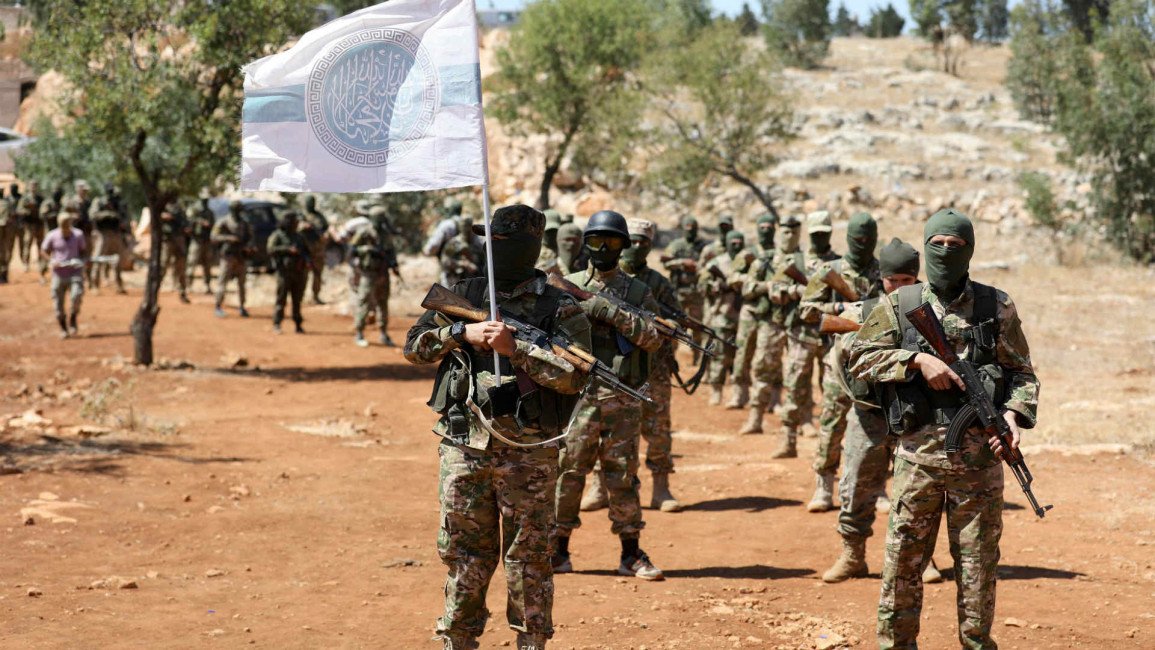Syria's HTS 'renounces' use of suicide car bombings in latest rebrand attempt
A source from HTS told Syria TV they would no longer engage in "martyrdom" operations using explosive-rigged vehicles, as the group seeks to distance itself from transnational jihadism.
There has been no official confirmation of the claims by HTS.
The Islamic State group and Al-Qaeda have frequently used suicide bombings, including with explosive-rigged vehicles.
HTS' have also deployed them in "Inghimasi" operations, where groups of well-armed fighters launch shock offensives on regime positions, usually resulting in high-rates of fatalities for the attackers.
Suicide car bombings are often part of a first wave in these offensives.
The source said that HTS had faced external pressure to renounce the use of such tactics, while new regime weaponry has made such operations less effective.
Instead, the group has invested in thermal and infra-red binoculars to launch surprise night-time attacks on regime and Russian positions, which the source said "will cause terror in [the enemy's] heart".
HTS is also training fighters to use weaponised drones to attack regime targets.
The group has also engaged in a major restructuring of its divisions to make it a more effective fighting force, the source told the broadcaster.
|
|
Videos released by the group show fighters from different factions engaging in training.
HTS was formed when Al-Nusra Front ended its affiliation with Al-Qaeda and announced a name change.
This year, HTS leader Abu Mohammed Al-Jolani engaged in a major re-branding effort, visiting civilian areas and adopting a less militant persona.
This comes as Turkey faces pressure to rein-in jihadist groups in Idlib province after reaching a ceasefire agreement with Russia.
HTS have since engaged in widespread efforts to weaken the hard-line Hurras Al-Din faction in Idlib province and scaled-down attacks on regime positions.
Fighting has broken out in recent days between regime and rebel positions in Idlib, leading to Russian airstrikes.
Activists fear the regime and Russia are planning a new offensive on Idlib province, after capturing much of the opposition territories earlier this year in a brutal and bloody military offensive.



